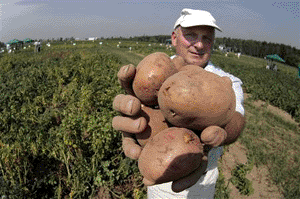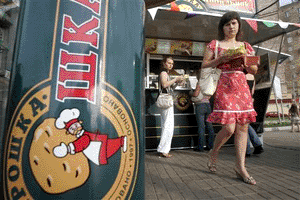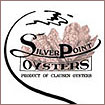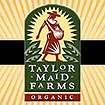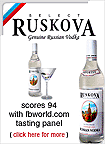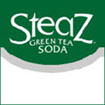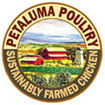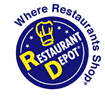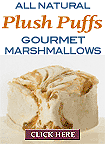Fest Celebrates Russians' Potato Passion
By
MANSUR MIROVALEV
|
(AP)
Vladimir Neupokoyev, a selector from an agricultural institute,
shows off potatoes grown at a test... |
MOSCOW
(AP) - It was a Spud-nik celebration.
Thousands of scientists,
business executives and gastronomes from around the world converged
on Moscow this week to lavish praise on a Russian icon: the common
potato.
The occasion was
Moscow Potato 2007, a chance for leading potato-heads to debate
the subtleties of planting, exchange cooking tips and strategize
on ways to promote the potato around the world.
Moscow was a fitting
venue: While New York is known as the Big Apple, the Russian capital
is called the Big Potato. And rightfully so - for the lumpy tuber
holds a privileged place in Russian history and hearts.
Among Czar Peter
the Great's many reforms was introducing potatoes to Russia 300
years ago. They were initially rejected by the peasantry as "Devil's
Apples," but potatoes quickly caught on and eventually came
to rival cabbages and beets as staples of the Russian diet.
During the worst
famines of the Soviet era the potato saved millions of lives.
Organizers staged the three-day spud fest at the sprawling All-Russian
Exhibition Center in northern Moscow - still decorated with Soviet
statues of robust maidens bearing sheaves of grain - and at the
All-Russian Research Institute for Potato Growing southeast of
Moscow.
Boris Vershinin,
who spent four decades breeding varieties that could thrive in
Russia's harsh climes, admonishes anybody who dares disparage
the potato by using the diminutive Russian term "kartoshka"
for the vegetable.
"It's 'His
Highness Potato,'" said the biologist from the southern city
of Kislovodsk. "It's Russia's second bread."
|
(AP)
A young Russian woman carries her fast food lunch from Kroshka-Kartoshka,
or "Baby Potato" on.. |
Vershinin gave
a tour of the institute's potato plots to international colleagues
Thursday, squeezing intriguing specimens as he lectured on the
varieties he cultivated over the years.
All the while,
he expounded on the potato's legacy in Russia.
After initially
overcoming their suspicions, he explained, Russian peasants learned
to plant the hardy crop in fields where agriculture is risky because
of unpredictable weather, high humidity and early winters.
The potato became
a key ingredient in everything from borscht to vodka.
During the early 1920s, as Russian agriculture collapsed, Bolshevik
commissars raided villages to confiscate grain and redistribute
it. All that some peasants were left with were potatoes, but it
was enough to keep many alive.
Potatoes helped
ease food shortages during World War II, when there was again
widespread hunger. The Soviet Union's 1947 famine could have been
much more devastating without spuds, Vershinin said.
For most of the
20th century, Russia produced more potatoes than anywhere else
in the world - until the Chinese took the lead in the late 1990s.
Although the Russian
diet has drastically improved in the 16 years since the Soviet
collapse, the potato still rules many fields here. The Ministry
of Agriculture says about 7 million acres of Russian farmland
are dedicated to growing potatoes.
Meanwhile, Russians
have been learning to eat potatoes in new ways.
During the communist
era, Russians knew such things as potato chips existed, but only
because they saw them in the movies. Last year, according to market
research firm Euromonitor International, Russians bought almost
130,000 tons of potato chips.
After McDonald's
and other fast food giants invaded post-communist Russia, peddling
french fries to the potato-loving masses, local producers responded
with chains grounded in national cuisine.
Kroshka-Kartoshka,
or "Baby Potato," founded by two Muscovites in 1998,
hawks potatoes out of brightly colored kiosks scattered throughout
Moscow and other Russian cities. Their product is served whole,
baked and hot - lathered with cheese and butter and stuffed with
delicacies such as marinated mushrooms, salmon or fried eggplant.
"The customers vote for us with their rubles," said
marketing director Mikhail Kudryavtsev.
|



